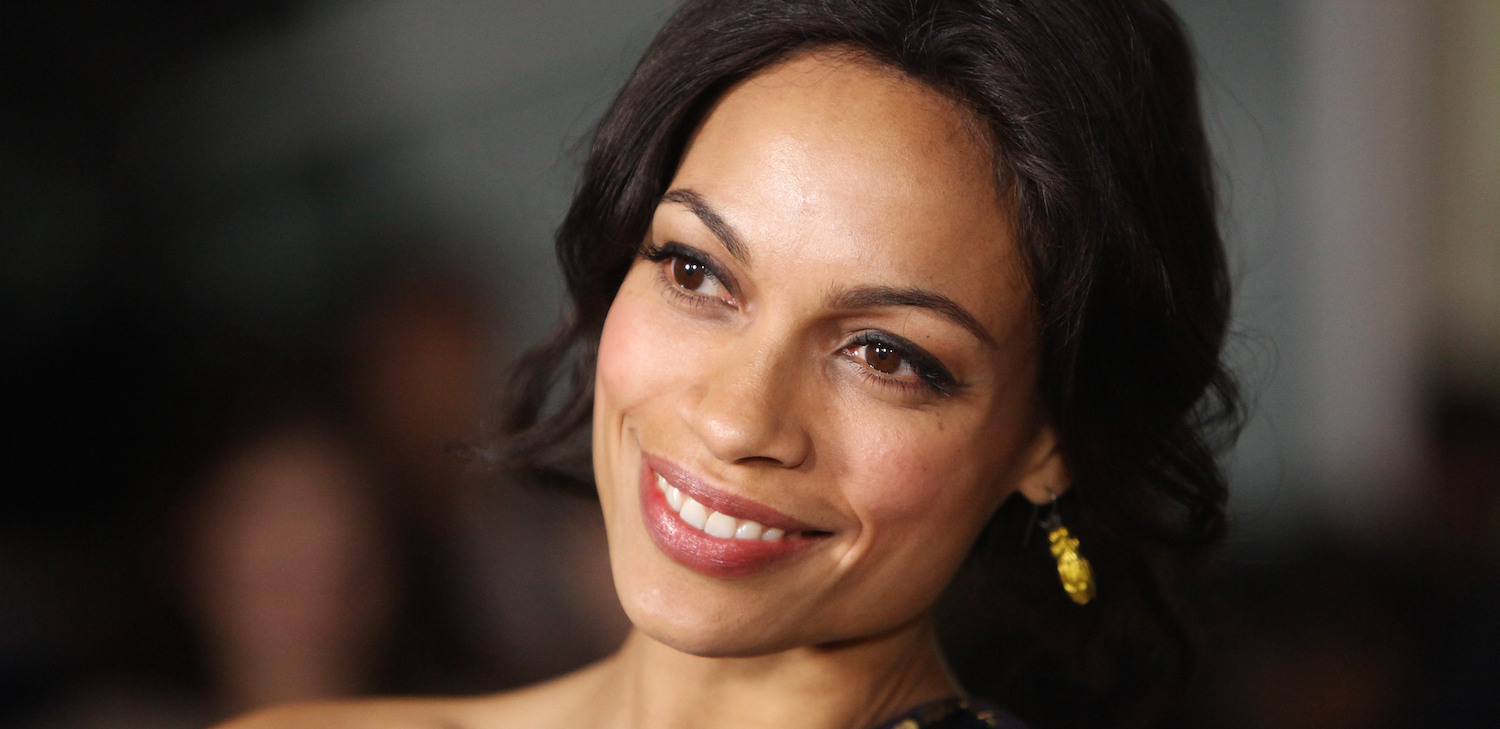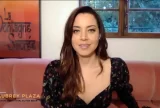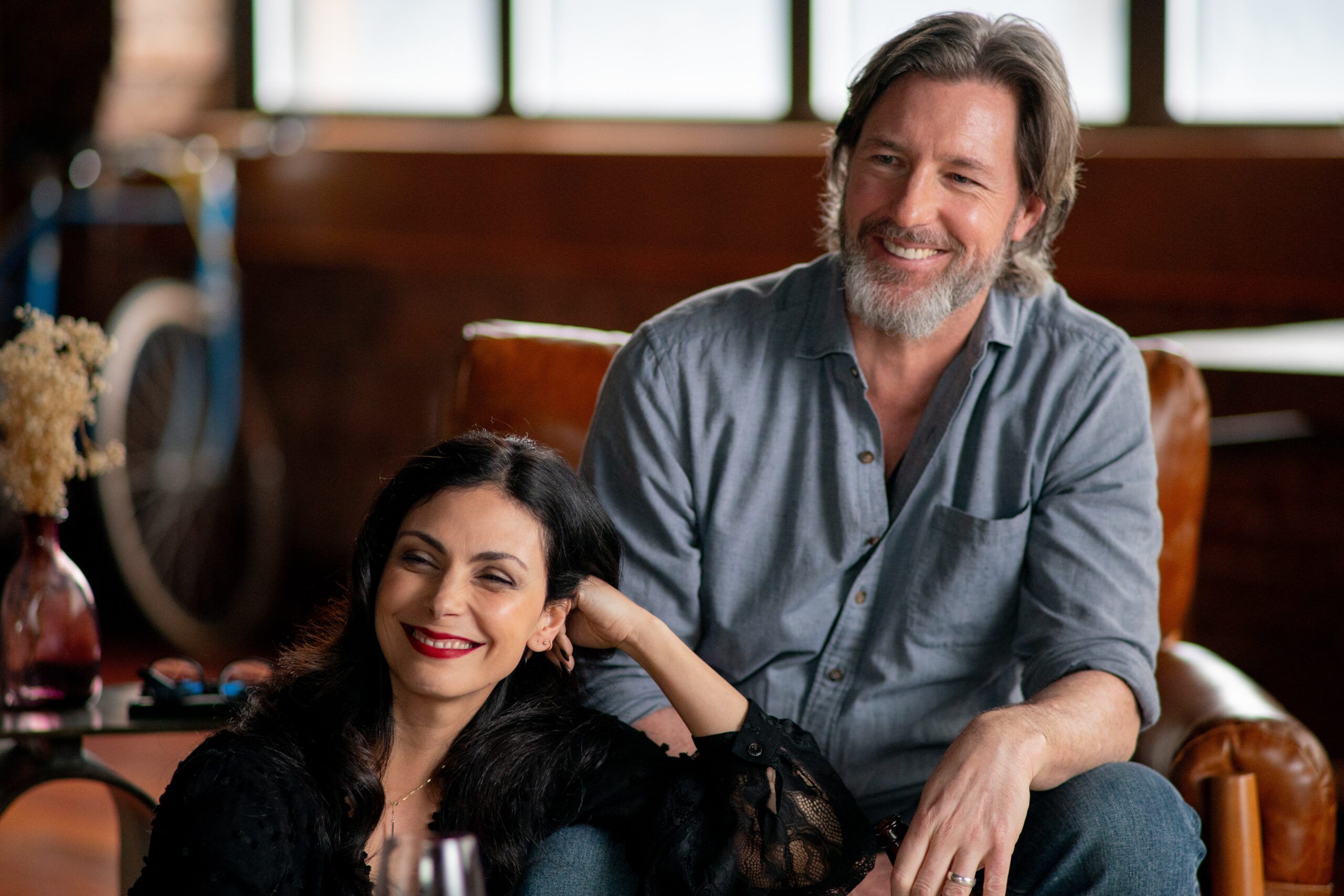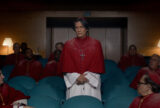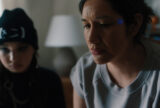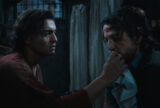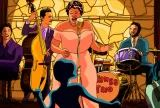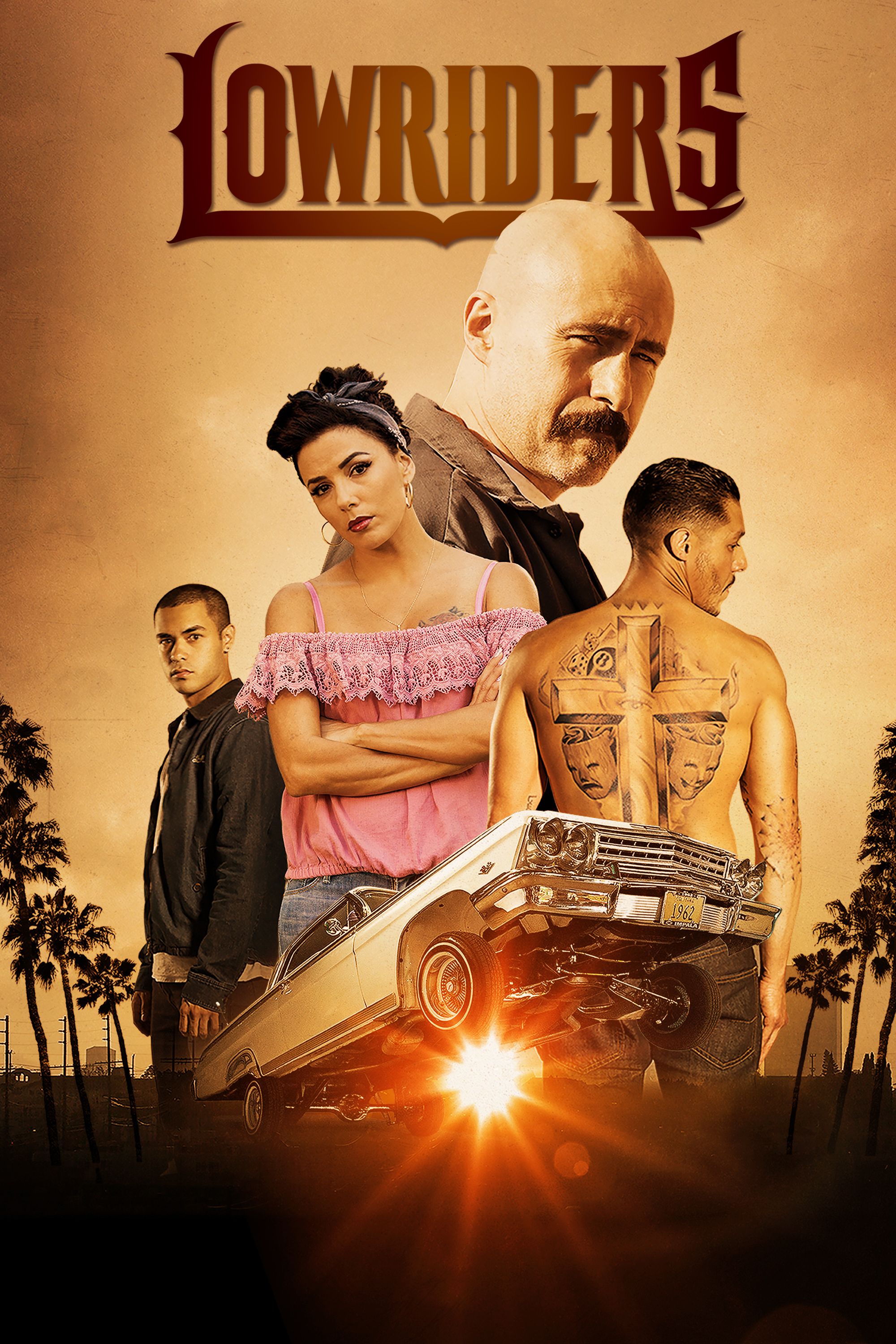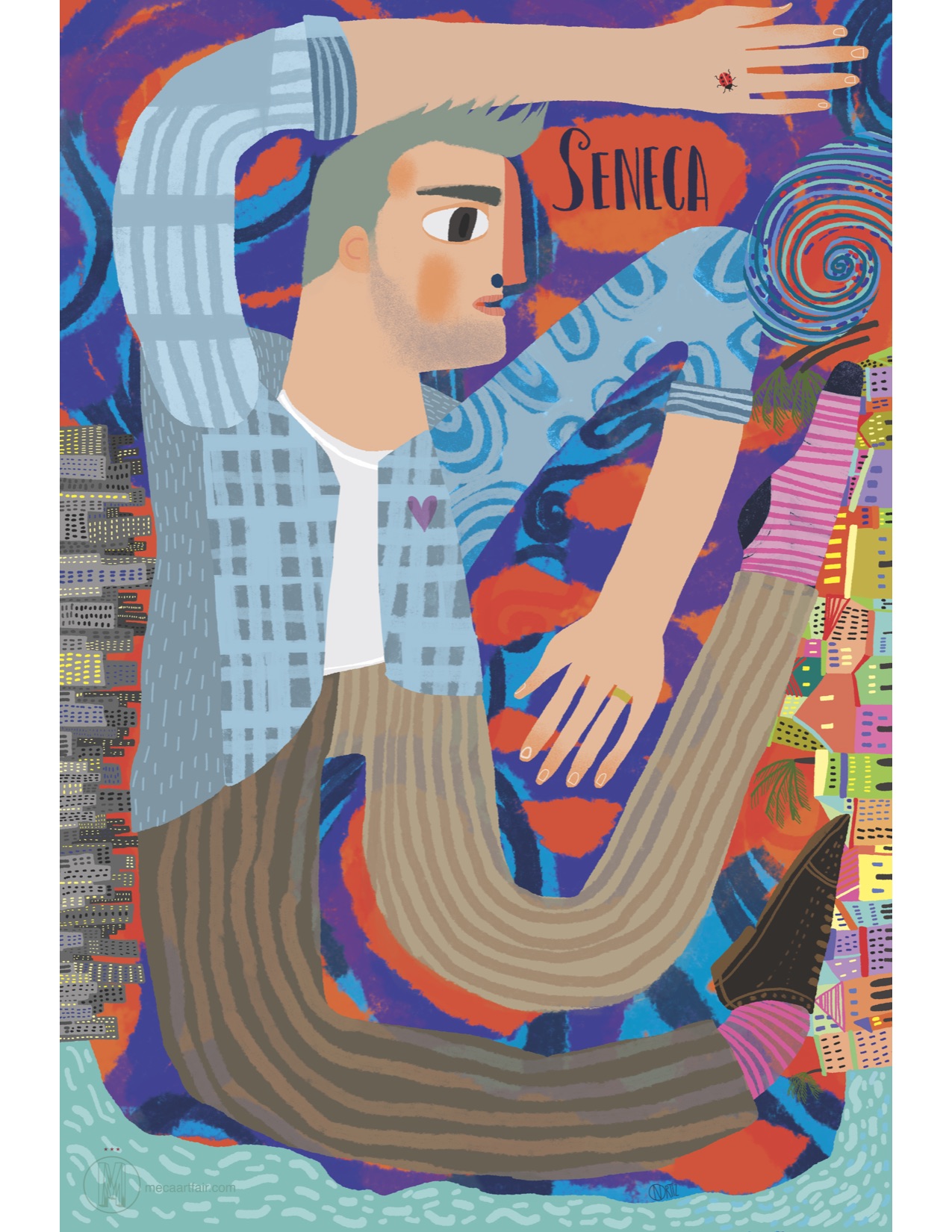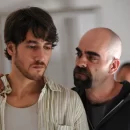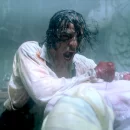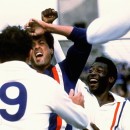03.31.2014 | By Mariana Dussan |
After it’s modest box office success with $3 million dollars in 664 theaters, today on Cesar Chavez Day, many Hispanics and non-Hispanics are learning more about the man who fought for the rights of farmer immigrants back in the 60’s and 70’s. Diego Luna’s film ‘Cesar Chavez‘ hit a major cord for one of its cast members, Rosario Dawson – about producing one of her own films. We spoke to her about this and much more.
Mariana Dussan (MD): What challenges did you face playing Dolores in this film?
Rosario Dawson (RD): Well, for Dolores there are multiple things that were really hard, when you’re playing a real person who’s still alive, and you’re talking to them and wanting to honor them and celebrate them.
[youtube id=”0PVSXklHhWI”]
MD: Do you think you honored her with you performance? Did she like it?
RD: I just love her so much and I want it to be all in there. And this is a movie that’s encapsulating ten years of a movement in an hour and a half, and so I don’t think you even barely touch or skim the surface of what Dolores has contributed to us over these years. And I think it’s impossible to do that in something like this, but I hope with the success of this film, that there’s an opportunity to tell her story, because she’s still writing it, she’s still out there on the front lines doing this stuff. We’ll have summits for Voto Latino and she’ll show up for the whole weekend. She was supposed to talk in the beginning, but she’ll stay for the whole weekend. She’s getting all the kids to sign a petition, she’s getting all the wait staff to sign the petition, she’s sitting in on the social media campaign panels so she can learn better about tweeting.
I kept asking if she’d seen the movie because I was nerve-wracked [and] I needed to know if she’d seen this movie. I’ve really been anxious as soon as I heard this movie was happening, just of what her reaction would be. She’s savvy, she read the script, she had notes, we’d talk, and suddenly every little detail was making me nervous. But then of course, I’m asking everybody, I’m asking my publicist, I’m like, “I don’t want to call her, just in case she hasn’t seen it yet … I want her to call me.” She never called me she just tweeted at me and said like, “Congratulations.” She loved the movie [and] she loved my performance.
MD: Have you kept in touch with her since you finished the film?
RD: We just saw her at SXSW, she came out for the screening, we went out dancing at the after party, and she’s in her eighties. I’ve danced with her, her whole family, four generations. She has 11 children they’re all remarkably young people. She’s four generations down now already. When I went to go visit her in Bakersfield she was driving, she drove me around she’s amazing.
MD: You’ve been doing all of these tough and much more diverse and sort of
contentious roles lately, so are you enjoying being contentious?
RD: I think I have a tendency to gravitate towards stories like that, of very particularly strong women and different matters. It doesn’t mean that because she’s a drug addict that she’s not a strong woman, she’s still very forthright, she’s still very intensely related to the people around her onscreen, and so I really like that, I like playing women who make their
presence known in their community, in that circle that you end up witnessing onscreen.
MD: In terms of Latinos and Hollywood, how do you think this film will change the scene? Will it inspire the making of more Latino films for Latino people, where actors such as yourselves, America and Diego, have the opportunity to play roles outside of the stereotypes?
RD: I think a lot of that is going to really depend on the actual audience. We got the audience award at SXSW which was awesome, they were a great audience. But if people show up to come and see this movie, then I think it sends a very clear message to Hollywood – which didn’t fund this film, didn’t support its being made, but came in to distribute it, which is amazing, that’s very important, so it’s not to take away from that. They see its potential, they recognize it, they see what it is and I think if it does well, it bodes very well for the future for us, to be able to tell more stories.
It’s like Robert Rodriguez now creating El Rey [Network], because he’s going: “I don’t know
why, I thought I’d see a bunch of Robert Rodrigues after I hit the scene, I thought they’d all show up and they didn’t.†They’re there, they’re making stuff, but it’s not getting past Latin film festivals, or certain channels. And he’s like, “You know, I’m going to create a space for
people to showcase their work, and keep it and own it, and really do it.” That’s what it’s going to take, people stepping up and creating those opportunities, creating those spaces, and supporting it. And the more support it gets, the bigger it will grow. I think that’s really important, because as you look at millennials, and you look at specifically Latino millenials, they’re really only treated as consumers, but they have to be innovators. That’s the only way that we’re really going to grow as a nation, we have to start really investing especially in our young people. This is important for them to be a part of, to recognize the movements that they could be starting or growing or joining, or the storytelling that they can be a part of, there’s so much to be done, there’s so many glass ceilings still yet to be broken. That’s why it’s a really remarkable opportunity when you see something like this, it’s very inspiring and I’m very curious to see what comes after this.
MD: In terms of film, are you inspired to do anything else after this project? Play other Latino characters or even directing?
RD: if anything, maybe try to produce a story about Dolores. I did so much research about her, and a lot of the stuff that we filmed didn’t even make it into the cut. So I hope some of that maybe will be in the DVD extras because you really don’t get enough of what she really contributed, which is so remarkable. It would be really remarkable for her to have a film that she could be a part of in developing and be creative with while we still have her. She’s still here and she’s still on it. She’s an incredible resource … I told Diego, we really have to have her do a DVD commentary like, you can’t miss that, it’s just history.
She’s so lucid, she’s so on it, that’s also the reason why I do want to start writing and directing and producing because I like to tell stories that I’m not always in the front of the camera for, but I know that that really should happen. It just feels like the right thing to do, and what a wonderful complement for this film, and this story, to kind of continue to build on that, and grow that. Because this is a moment in our history that has been marginalized as well. We know the Civil Rights movement and what Martin Luther King did, and we readily say Gandhi and talk about nonviolence movements, and this was a huge movement. People should know that a young, uneducated farm worker made his name and movement known around the world. That’s a big deal.

